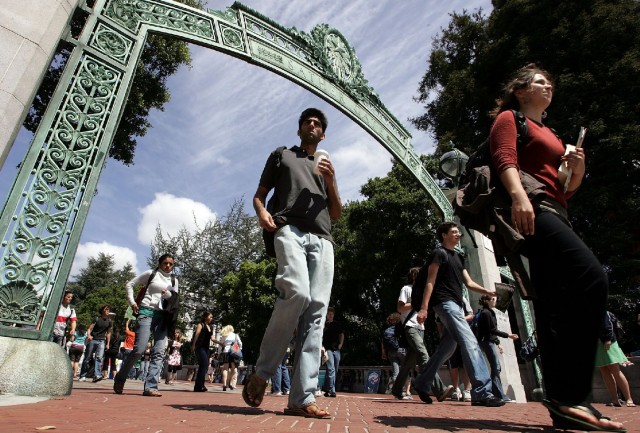That’s exactly what opponents wanted to hear. They had barraged legislators with emails and phone calls, sent around a petition that got more than 114,000 signatures, and held town hall meetings in places with large Chinese populations like Silicon Valley and San Gabriel Valley.
Some observers say this kind of activism signals a political maturing.
James Lai, who teaches ethnic politics at Santa Clara University, says most Chinese Americans in the U.S. emigrated in recent decades. “When they first arrived, they probably wouldn’t have done that,” he says. “But over time, they acculturate and understand they also have a place here in American politics. This is their new home.”
One tactic opponents mastered was building coalitions. Olivia Liao is president of a Chinese university alumni association that joined forces with seven Chinese-American community groups in Southern California to get the word out on SCA5.
“We have decided that we need to raise the awareness of everyone in the Asian community,” she said. “And let people come out and tell the Legislature our voices.”
The coalition lobbied Chinese-American politicians, including the three Democratic state senators who had all voted with their party to approve the bill that would put the measure on the state ballot.
“The Asian American politicians have been spoiled by new immigrants’ immaturity with politics,” says S.B. Woo, president of a national political action committee called 80-20, a reference to the proportion of Asian-American votes the group says can swing presidential elections. The committee joined the coalition fighting attempts to revive race-based admissions at California universities. Woo says in Chinese culture, political leaders command deference from the public.
“Elected officials must be the great scholars, and therefore you (have) to respect them like their parents,” Wu says. “But that’s feudal way of thinking.”
That “feudal way of thinking” is fading. Under pressure from angry constituents, the three Chinese-American senators backed off from their votes and asked the Assembly speaker to stop the measure from going further.
While that was cause for celebration for these newly energized activists, other Chinese-Americans shook their heads.
“It’s important to not only look at your own self-interest, but also to look at what’s good for a broader society, what’s good for all of us, as Californians,” said Karen Wang, of Asian Americans Advancing Justice in L.A. She says people she knows who are of Chinese descent and who have grown up here see the value in affirmative action.
“Many of us are able to achieve what we’re able to achieve because we benefited from civil rights advancements that happened before us,” she says. She hopes there can be a debate on improving access to California’s chronically underfunded universities for students of all races.
But others have a different focus: Proving to politicians that Chinese Americans are not to be underestimated. The group 80-20 is urging Chinese Americans to register as Republicans before the primaries.
“You know parties check registration records all the time,” says Woo. “It would be a very good warning to the extreme liberals in the Democratic Party. ”
Woo says that several Chinese-American groups throughout California have already signed on. Playing political parties off one another — now that , he says, is one of the best traditions of democracy.
Listen to the audio
